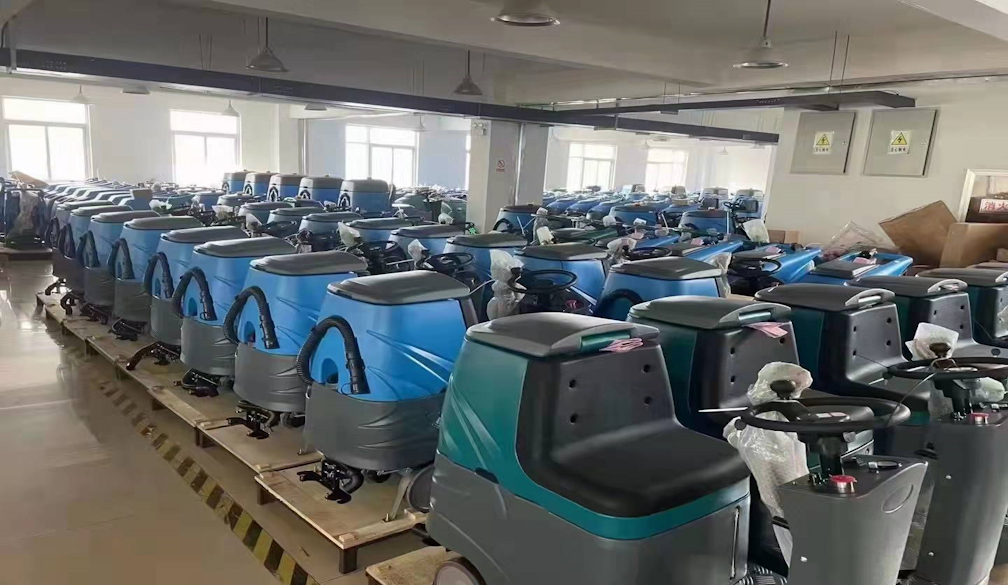The Psychology of Cleanliness: How Ride-On Sweepers Influence Perceptions

Since the beginning of time, order, safety, and general wellbeing have all been associated with cleanliness. The maintenance of a clean environment is a necessity for human existence, and both private and public settings must adhere to this criterion. But have you ever considered the potential impact that the tools and machinery used to achieve cleanliness can have on a person's mental state? This article explores the fascinating world of ride-on sweepers and looks into potential ways that the use of these tools can alter how people perceive cleanliness.
The Power of Perception
Before we explore the realm of ride-on sweepers, it's critical to comprehend the importance of perception in our daily lives. Our ability to perceive is how we give our experiences meaning by interpreting sensory data. It influences how we judge, feel, and act.
Our perception of an environment can significantly affect how we feel and act in it, especially when it comes to cleanliness. While a messy or cluttered place might arouse feelings of discomfort, uncertainty, and even tension, it is more likely to be seen as welcoming, safe, and structured.
The Rise of Ride-On Sweepers
In contemporary metropolitan settings, ride-on sweepers, sometimes referred to as street sweepers or industrial sweepers, are commonplace. These devices are made to effectively clean big spaces including parking lots, streets, and industrial buildings. They come in a variety of shapes and sizes, from small, lightweight sweepers to enormous, powerful ones.
The Mechanics of Cleanliness
Let's take a closer look at how ride-on sweepers operate before we discuss how they affect perceptions. Brushes and vacuum systems are frequently combined in ride-on sweepers. The vacuum system gathers and stores the waste in an onboard container while the brushes agitate and remove dirt, debris, and litter from the surface.
Ride-on sweepers are an essential tool for keeping public spaces clean because of their amazing efficiency and thoroughness. Do these machines, though, perform tasks besides sweeping the streets? Let's look into it.
Influencing Perceptions of Cleanliness
Visual Impact
The visual impact of ride-on sweepers is one of the most obvious ways they affect perceptions. Imagine a busy metropolitan street that is covered in trash and grime. Imagine a ride-on sweeper moving through with grace, its brushes spinning, and its vacuum system quickly removing the debris. The change happens quickly and dramatically.
The Halo Effect
Psychologists refer to this visual alteration as having the "halo effect." The halo effect is a cognitive bias where perceptions of unrelated positive attributes, such as orderliness, safety, and general attractiveness of the surroundings, are influenced by perceptions of one positive trait, in this case cleanliness.
People are more likely to consider the neighborhood to be well-kept, secure, and even aesthetically pleasant when a ride-on sweeper is present. This may have a favorable effect on how they see the area generally and how they feel about it.
2. Auditory Influence
Our other senses are also involved when we experience cleanliness, so it's not just a visual thing. The aural component of ride-on sweepers can significantly influence how people see things.
The Sound of Efficiency
An unusual auditory sensation is produced by the hum of a ride-on sweeper's engine, the repetitive sweep of brushes, and the suction of waste. This noise can suggest productivity and efficiency.
People are more likely to identify a ride-on sweeper's sounds with progress and cleanliness when they hear it at work. This may result in favorable opinions of both the environment being cleaned and the cleaning method itself.
3. Psychological Comfort
Ride-on sweepers add to psychological comfort in addition to the visual and aural components.
Reducing Cognitive Load
Our cognitive abilities can become overtaxed in a messy or congested environment. In such environments, it may be difficult for us to concentrate, make choices, or feel comfortable. Ride-on sweepers lessen this mental load by instantly restoring cleanliness.
A ride-on sweeper's effective clearing of an area gives people a psychological sense of relief, making it easier and more comfortable for them to move around the region.
Implications for Urban Design and Maintenance
The use of ride-on sweepers in urban planning and maintenance practices will be significantly impacted by our understanding of how perceptions of cleanliness are influenced.
1. Promoting Well-Being
By adding regular cleaning schedules into their maintenance routines, cities and municipalities can take advantage of the psychological advantages of ride-on sweepers. Cleaner streets can improve both inhabitants' and tourists' feelings of wellbeing.
2. Enhancing Safety
Environmental cleanliness and increased safety are frequently linked. Since people are more likely to feel secure in clean environments, the ride-on sweepers' good opinion of cleanliness can help lower crime rates.
3. Aesthetics Matter
Ride-on sweepers' visual impact emphasizes how important aesthetics are in urban architecture. Cities that place a high priority on cleanliness increase their citizens' quality of life while also enhancing their appeal to tourists and potential investors.
Conclusion
We frequently concentrate on the finished product in our pursuit of cleanliness: the immaculate streets, the litter-free parks, and the well-organized workplaces. However, the cleaning supplies we use, like ride-on sweepers, have a subtle but significant influence on how we view the places we live. Ride-on sweepers are more than just cleaning tools because of their visual impact, acoustic influence, and contribution to psychological comfort. They act as agents of perception, altering how we perceive and interact with our surroundings.
Recognizing the psychological effects of cleanliness-enhancing devices like ride-on sweepers can help create cleaner, safer, and more visually pleasing urban environments as cities continue to expand and change. So, the next time you see a ride-on sweeper at work, stop to admire not only its cleaning abilities but also its part in influencing how you view the world.









